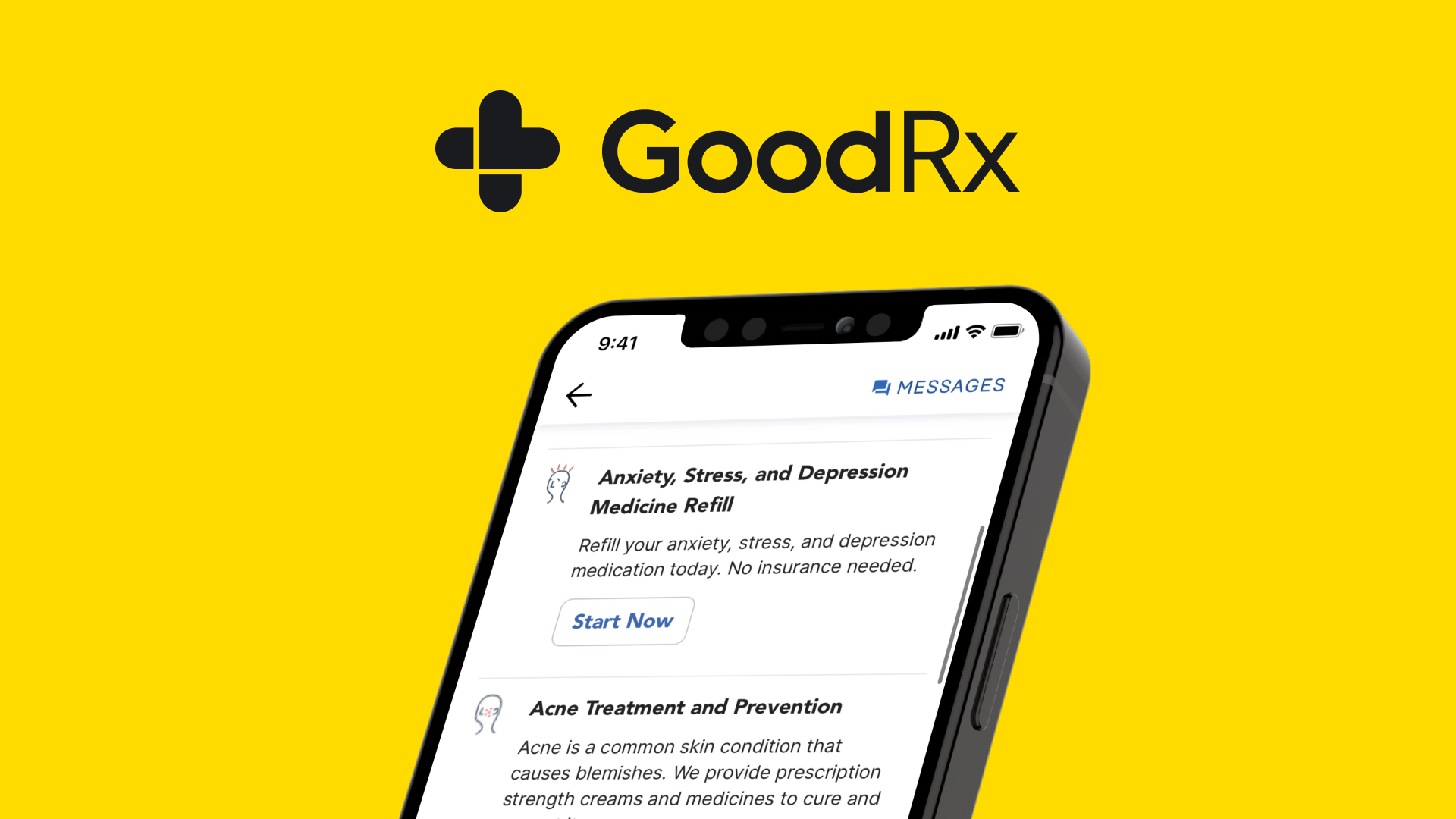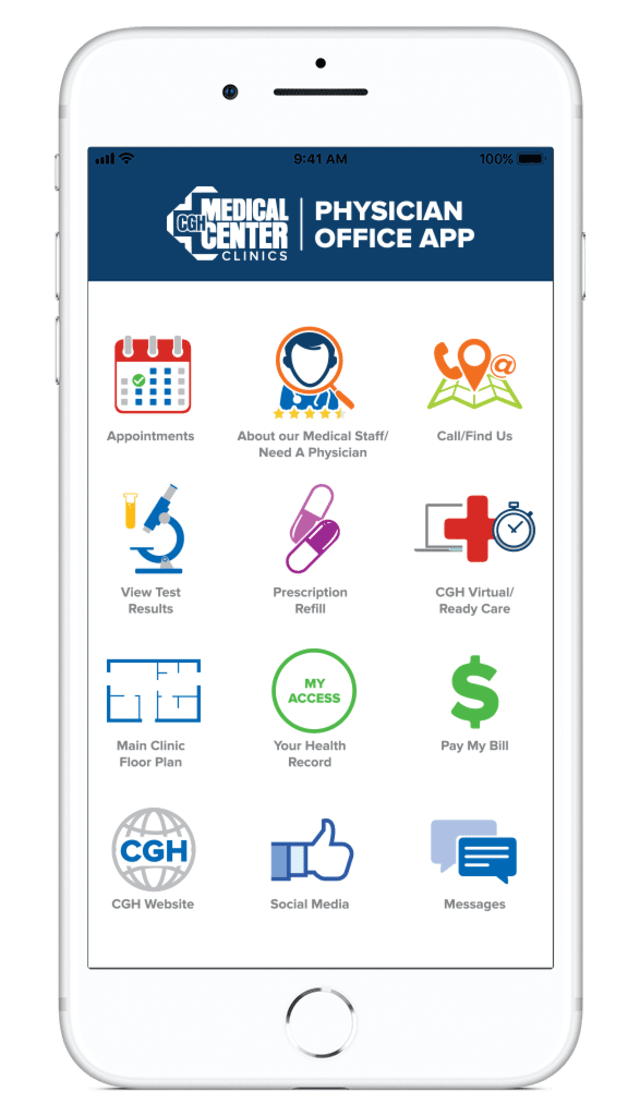How a Mobile App for Clinics Boosts Interaction Between Doctors and Patients
How a Mobile App for Clinics Boosts Interaction Between Doctors and Patients
Blog Article
The Future of Healthcare: Why Clinics Need a Mobile App Today
As the health care landscape continues to develop, centers deal with installing pressure to adapt to individual expectations for higher convenience and ease of access. The combination of mobile applications can serve as a crucial method for enhancing patient involvement and simplifying operations. By leveraging technology to boost communication and supply crucial solutions, facilities not only resolve existing needs but additionally position themselves for future success. The implications of this shift expand past simple functional effectiveness; they might redefine client connections and care shipment in extensive methods. What might this change appear like for both patients and clinics?
Transforming Client Assumptions
As the landscape of medical care evolves, individual expectations are undergoing a considerable transformation. Today's patients are significantly looking for ease, access, and customized treatment. With the rise of innovation, specifically mobile applications, individuals now anticipate a smooth combination of health care services right into their every day lives. They desire the capacity to handle consultations, gain access to medical documents, and interact with doctor through their smart devices, reflecting a change towards a more proactive approach to health and wellness management.
Moreover, clients are becoming extra notified and encouraged, usually investigating treatments and conditions on-line prior to appointments. This heightened awareness is combined with a demand for transparency in medical care processes, including cost price quotes and treatment choices. Therefore, suppliers are urged to adjust by taking on digital devices that improve the client experience.
The expectation for effective and timely interaction has actually never been higher, with numerous patients taking into consideration responsiveness an essential element of quality care. mobile app for clinics. In this developing landscape, healthcare companies need to acknowledge these changing expectations and utilize mobile applications to cultivate an extra patient-centric approach, guaranteeing that they not only fulfill however surpass the criteria set by today's enlightened customers
Enhancing Person Involvement

Mobile applications facilitate interaction in between clients and doctor, enabling real-time appointment scheduling, pointers for medication adherence, and straight messaging features. These functionalities not just boost convenience yet likewise develop a sense of responsibility among individuals. In addition, mobile applications can supply instructional content customized to specific demands, assisting individuals better recognize their conditions and therapy options.
The assimilation of gamification aspects within health care applications can additionally encourage patients to engage in healthy and balanced actions, reinforcing positive way of life changes. Inevitably, boosting patient involvement via mobile applications leads to enhanced wellness end results, higher patient complete satisfaction, and a more collaborative health care experience.
Enhancing Clinic Workflow
Enhancing center procedures is crucial for boosting process effectiveness and enhancing individual care. The application of mobile applications can substantially decrease management worries, allowing medical care suppliers to concentrate much more on individual communications. By automating consultation scheduling, client check-ins, and invoicing procedures, clinics can reduce wait times and boost overall functional performance.
Mobile apps likewise help with real-time accessibility look these up to patient records, allowing medical care specialists to make educated decisions promptly. This immediacy not just enhances the quality of care but likewise decreases the probability of mistakes associated with lost or obsoleted information. Leveraging mobile modern technology supports a much more orderly method to handling person follow-ups and treatment plans, guaranteeing that no crucial steps are overlooked.
Additionally, mobile applications can streamline inventory administration by supplying centers with tools to keep track of supplies and medicines efficiently. This permits for prompt replenishment and helps prevent disruptions in client care due to equip scarcities. By integrating these performances right into their day-to-day operations, clinics can develop a much more efficient and cohesive setting, eventually bring about boosted client results and fulfillment. Welcoming mobile innovation is not just a fad; it is an essential advancement in the health care landscape.
Improving Interaction Networks
Reliable communication is regularly mentioned as a keystone of top quality health care distribution. In today's fast-paced clinical setting, mobile applications can considerably boost communication networks in between clinics, patients, and doctor. By incorporating mobile apps right into their procedures, clinics can promote real-time communications, making sure that people receive prompt info regarding their visits, examination results, and therapy plans.
Mobile applications additionally equip clients to interact directly with their medical care teams with safe messaging features. This straight line of interaction fosters a feeling of interaction and enables instant information of concerns, which can result in much better adherence to treatment protocols. Push alerts can advise patients of upcoming visits or drug routines, reducing no-show rates and boosting general health and wellness explanation outcomes.

Staying Competitive in Healthcare
In a rapidly my latest blog post evolving medical care landscape, companies have to prioritize technology and versatility to preserve an one-upmanship. The integration of mobile applications right into health care services is no more optional; it is vital for clinics intending to boost patient involvement, streamline procedures, and improve overall service shipment.
As individuals increasingly rely upon digital systems for health management, clinics that stop working to adopt mobile modern technology danger falling back. A properly designed mobile application can offer functions such as appointment scheduling, telemedicine consultations, and accessibility to medical records, giving patients with benefit and promoting commitment.
Rivals are also spending in mobile solutions, so remaining in advance calls for continual enhancement and staying educated regarding technical innovations. Facilities need to not just apply mobile applications but likewise engage in regular updates and improvements. Eventually, the successful integration of mobile innovation will identify forward-thinking medical care companies and set the criteria for patient-centric treatment in a digital globe.
Verdict
In verdict, the assimilation of mobile applications in facilities is necessary to deal with the progressing landscape of patient expectations. Eventually, the strategic execution of mobile applications represents a vital step toward supplying personalized and available medical care, therefore fulfilling the needs of today's empowered clients.
Eventually, improving person interaction via mobile applications leads to boosted wellness results, better client complete satisfaction, and a more joint healthcare experience.Mobile apps likewise help with real-time access to client records, allowing healthcare specialists to make enlightened decisions promptly. In today's busy clinical atmosphere, mobile applications can significantly enhance interaction channels in between centers, individuals, and medical care suppliers.Mobile apps additionally equip clients to interact straight with their medical care teams through protected messaging functions. Ultimately, the calculated implementation of mobile applications represents an important action towards supplying tailored and obtainable health care, consequently satisfying the demands of today's encouraged clients.
Report this page